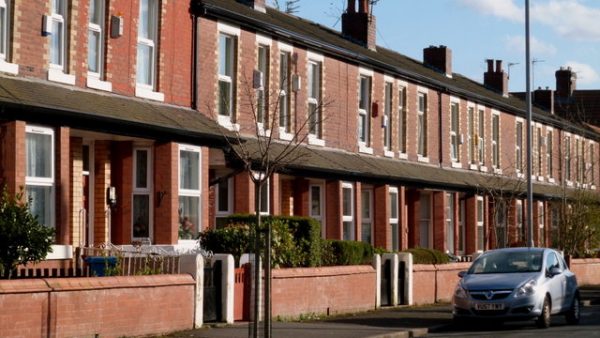A silent storm? The reclassification of Welsh housing associations
22 September 2016
The summer of 2016 will be remembered forever as an extraordinary period for British politics, but as we head into the autumn the events of the summer continue to dominate the political landscape across the UK. Such has been the focus in recent weeks on Brexit and the Labour leadership election that many other stories have slipped under the radar. One such story is set to emerge from the shadows over the next week or so and could present the Welsh Government with some significant challenges.
On the 29th of March 2016 the Office for National Statistics (ONS) announced that it intended to undertake a review into the status of housing associations in Wales (officially known as Registered Social Landlords). At present Welsh housing associations are classified as part of the private sector. With the ONS’s review nearing conclusion however, it seems almost inevitable that Welsh housing associations are on the verge of being reclassified as part of the public sector, a decision that would have significant implications for Welsh politics and devolution.
This is a storm that has been brewing for over a year. In the summer of 2015 reports began to appear that the ONS were considering undertaking a review into the classification of English housing associations. By the end of that autumn they had concluded their review and announced that housing associations on the eastern side of Offa’s Dyke would be reclassified as part of the public sector, a decision that transferred their debt, £60 billion, onto the national balance sheet. The ONS reached this decision based on the degree of control exercised by the UK Government over the social housing sector, either directly by itself, or indirectly through the regulator, the Homes and Communities Agency. Given the similarities that existed between the controls enjoyed by the UK Government in England and the controls enjoyed by the Governments in the devolved nations, it quickly became apparent that it would only be a matter of time before such a decision was reached for the sectors in Wales, Scotland and Northern Ireland.
The reclassification of Welsh housing associations would present the Welsh Government with considerable challenges. The decision could have a significant impact on the Welsh Government’s ability to reach its target for affordable home construction. If housing associations were to be reclassified they would have to comply with public sector borrowing rules, reducing their ability to borrow from the private sector, severely limiting their ability to construct new homes.
Perhaps the most significant impact of reclassification would be transfer of Welsh housing associations debt onto the public balance sheet. This would add a further £2.3 billion to the national debt. Housing is a devolved area, it would therefore be up to the Welsh Government to choose how it wishes to react to reclassification. In reality however the ability of the Welsh Government to pursue its own policy course appears limited. The Welsh Government will face considerable pressure from the UK Treasury to ensure that the £2.3 billion of additional debt is removed from the balance sheet as quickly as possible. Any resistance by Welsh Government could be a further strain on the relationship between the Governments at both ends of the M4.
The Welsh Government’s options therefore appear limited. In England, the UK Government has deregulated the sector in an attempt to reverse the ONS reclassification so as to move English housing associations back into the private sector. Such an approach seems to be only viable option available to the Welsh Government. The politics of deregulating the sector in Wales could become complicated however. Would Plaid Cymru be willing to support legislation that would see a reduction in Government control over social housing? Would the Welsh Government be prepared to work with the Conservatives or UKIP to enact deregulatory legislation? Whilst the answer to these questions may become clearer over the coming weeks one thing seems beyond doubt, the choppy waters that the Welsh Government are navigating at present are about to become even choppier.
- December 2025
- November 2025
- October 2025
- September 2025
- June 2025
- May 2025
- March 2025
- February 2025
- December 2024
- October 2024
- September 2024
- July 2024
- June 2024
- December 2023
- November 2023
- August 2023
- February 2023
- December 2022
- November 2022
- September 2022
- July 2022
- April 2022
- March 2022
- January 2022
- October 2021
- July 2021
- May 2021
- March 2021
- January 2021
- November 2020
- October 2020
- August 2020
- July 2020
- June 2020
- May 2020
- April 2020
- March 2020
- October 2019
- September 2019
- June 2019
- April 2019
- March 2019
- February 2019
- December 2018
- October 2018
- July 2018
- June 2018
- April 2018
- December 2017
- October 2017
- July 2017
- June 2017
- May 2017
- April 2017
- March 2017
- February 2017
- January 2017
- December 2016
- November 2016
- October 2016
- September 2016
- Bevan and Wales
- Big Data
- Brexit
- British Politics
- Constitution
- Covid-19
- Devolution
- Elections
- EU
- Finance
- Gender
- History
- Housing
- Introduction
- Justice
- Labour Party
- Law
- Local Government
- Media
- National Assembly
- Plaid Cymru
- Prisons
- Reform UK
- Rugby
- Senedd
- Theory
- Uncategorized
- Welsh Conservatives
- Welsh Election 2016
- Welsh Elections